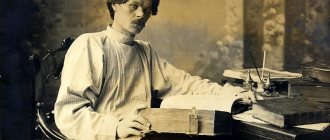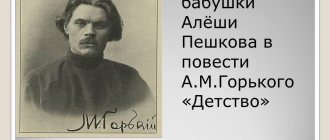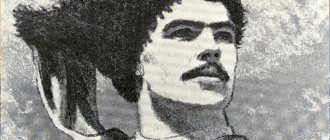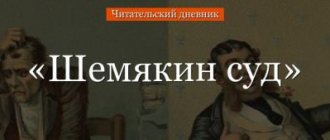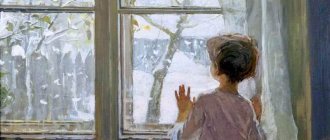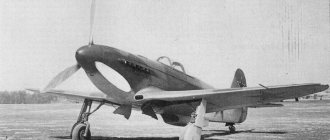The childhood of Maxim Gorky, one of the best Russian writers, was spent on the Volga, in Nizhny Novgorod. His name then was Alyosha Peshkov, the years spent in his grandfather’s house were eventful, not always pleasant, which later allowed Soviet biographers and literary scholars to interpret these memories as incriminating evidence of the depravity of capitalism.
Memories of childhood as a mature person
In 1913, being a mature man (he was already forty-five years old), the writer wanted to remember how his childhood passed. The reader loved Maxim Gorky, by that time the author of three novels, five stories, a dozen plays and several good stories. His relations with the authorities were difficult. In 1902 he was an honorary member of the Imperial Academy of Sciences, but he was soon stripped of this title for inciting unrest. In 1905, the writer joined the RSDLP, which, apparently, finally formed his class approach to assessing his own characters.
At the end of the first decade, an autobiographical trilogy was begun, which was composed by Maxim Gorky. “Childhood” is the first story. Its opening lines immediately set the tone that it was not written for an audience hungry for entertainment. It begins with a painful scene of his father's funeral, which the boy remembered in every detail, right down to his eyes covered with five-kopeck coins. Despite the harshness and some detachment of a child’s perception, the description is truly talented, the picture is bright and expressive.
Why was writing a story necessary?
Why did Gorky want to write an autobiography? There is no clear answer. It is unlikely that Alexey Maksimovich was guided only by the desire to talk about himself and his path to becoming a person. Based on the reviews of his contemporaries, this would be too unlike Gorky. It is likely that the urge to write was a desire to understand himself (in the process of writing, he was able to relive what happened again, but rethink what happened from the point of view of an adult) or the writing was the need to demonstrate that ordinary people are also not devoid of talents and, with a lot of effort, they will still be able to become popular and this will be a well-deserved act.
In other words, this made it much easier for the young writer to write an interesting work, make a good impression on the reader, and interest him.
Starting work on the story
Despite the obsessive thought of writing an autobiography, Peshkov was in no hurry to turn it into reality. The writing of the work dragged on for quite a long period.
In 1893, his plans for the first time moved from the theoretical to the practical plane. Gorky is working on taking notes. In total, two of them were created. This was followed by a lull in this direction until 1906. This year there was no active action in terms of writing an autobiography, but Gorky repeatedly told friends and acquaintances about plans to write an autobiography.
A shift occurred in 1910 - Alexey Maksimovich began writing essays - short episodes about his childhood. Presumably, the peak of activity occurred in 1912-1913.
Publication of the story in periodicals and independent publications
At the end of January 1913, Peshkov communicated with the editors regarding the publication of his essays. In August of the same year, the first chapters of the work were published in the Russian Word newspaper. This process was not limited to a few publications - the material was published chapter by chapter and further.
The publication of the independent edition of the work did not last long - first the story was published abroad, in Berlin (1914), and then in the writer’s homeland - in 1915 (the publishing house “Life and Knowledge”).
Thus, Maxim Gorky planned to write an autobiography for a long time. Work on the work dragged on for several years, but by 1913 the reader could see the first publications of the work.
Autobiographical plot
After the death of the father, the mother takes the children and takes them by boat from Astrakhan to Nizhny Novgorod, to their grandfather. The baby, Alyosha's brother, dies on the road.
At first they are received kindly, only exclamations from the head of the family “Eh, you-and-and!” betray a past conflict that arose due to the daughter’s unwanted marriage. Grandfather Kashirin is an entrepreneur, he has his own business, he dyes fabrics. Unpleasant odors, noise, unusual words “vitriol”, “magenta” irritate the child. Maxim Gorky's childhood passed in this turmoil, his uncles were rude, cruel and, apparently, stupid, and his grandfather had all the habits of a domestic tyrant. But the worst, which was defined as “lead abominations,” was ahead.
A very brief summary in a nutshell
Alyosha Peshkov remembers the death of his father and the birth of his brother due to the worries of his pregnant mother. Together with their grandmother, they decided to go to their grandfather. On the way, the newborn brother also dies. The grandfather greeted them unkindly - he did not give permission for the mother to marry her deceased father. In a large house, where there was even a dyeing workshop on the ground floor, lived 2 more sons of the grandfather - Yakov and Mikhailo, as well as their wives and children. Everyone didn't like each other. The brothers fought among themselves, beat their wives and even their father, and the grandfather loved to flog children. In addition to relatives, strangers also lived in the house - the boy Ivan the Tsyganok, who was dropped off at the house, the master Grigory, who worked in the workshop, and others. Soon they were gone - Gypsy was crushed to death by a cross, and Grigory went blind and was kicked out of the house by his grandfather. The brothers decided to separate from their father, and Mikhailo went to another house, Yakov stayed in this one, and his grandfather bought himself a new house. The mother got married and moved with her son to her new husband, but he turned out to be a drunkard, often beat his mother, and did not love him. Alyosha had to return to his grandfather again. The mother gave birth to a son, Kolya, but her health was poor and she soon died. Grandmother and Kolya began to live with their stepfather, and grandfather sent Alyosha to the people.
Characters
The multitude of everyday details and the variety of relationships between the characters quietly charm every reader who picks up the first part of the trilogy, “Childhood,” written by Maxim Gorky. The main characters of the story speak in such a way that their voices seem to be hovering somewhere nearby, the manner of speech of each of them is so individual. The grandmother, whose influence on the formation of the personality of the future writer cannot be overestimated, seems to become the ideal of kindness, while at the same time the pugnacious brothers, overwhelmed by greed, evoke a feeling of disgust.
Good Deed, the neighbor's parasite, was an eccentric man, but at the same time, obviously, he had an extraordinary intellect. It was he who taught little Alyosha to express thoughts correctly and clearly, which undoubtedly influenced the development of literary abilities. Ivan-Tsyganok, a 17-year-old foundling raised in a family, was very kind, which sometimes manifested itself in some oddities. So, when he went to the market to buy things, he invariably spent less money than he should have expected, and gave the difference to his grandfather, trying to please him. As it turned out, in order to save money, he stole. Excessive efforts led to his premature death: he overstrained himself while carrying out his master’s instructions.
Characteristics of the heroes of the story Gorky's Childhood in the table, brief description, list of characters
| Alyosha with his grandmother. Still from the film “Gorky’s Childhood” 1938 |
This article presents the characteristics of the heroes of Gorky’s story “Childhood” in the table: a list of characters, a brief description of the heroes. The table presents both the main and secondary characters of the story “Childhood”. See: Summary of the story “Childhood” All materials on the story “Childhood”
There will only be gratitude...
Reading the story “Childhood” by Maxim Gorky, it is difficult not to grasp the feeling of gratitude that the author felt for the people who surrounded him in his early years. What he received from them enriched his soul, which he himself compared to a beehive filled with honey. And it didn’t matter that it sometimes tasted bitter and looked dirty. Setting off from his disgusted grandfather’s house “to the people,” he was sufficiently enriched with life experience so as not to disappear, not to disappear into obscurity in the complex adult world.
The story turned out to be eternal. As time has shown, relationships between people, often even related by blood ties, are characteristic of all times and social formations.
Essay: Issues in the story “Childhood” (M. Gorky)
M. Gorky’s story “Childhood” is a work that debunks myths about the well-being of life in Tsarist Russia. It turns out that not only the nobles Irtenyevs from L.N.’s “Childhood” were there. Tolstoy, but also the Kashirina commoners, whose life and morals were radically different from the aristocracy and delicacy of large estates. The author touched on social and moral problems that were so relevant in those days. Thanks to this book, we can study history comprehensively and look into every house, even those without stucco and columns.
In his work, Maxim Gorky touched on the problem of family. This was the main question that occupied him. In the story, the writer depicted the behavior and morals of a dysfunctional family, where self-interest, cruelty and violence reign. Everything in this family is built according to the laws of benefit and the right of force. Grandfather Kashirin beats children, sells his daughter, humiliates his wife, because he is physically strong and can afford aggression. But children and women will not fight back. But his relationship with his sons is completely different. Fights, mutual insults, fear - this is what binds the closest relatives. Yakov and Mikhail want to get their inheritance while their father is still alive, so they still keep themselves within limits. However, the conflict over Varvara’s share shows the true state of affairs: for the sake of material values, the heroes are ready to kill their father. And one cannot dare to condemn them, because they are the flesh of their father, just as cruel and mercantile. This speaks of continuity of generations, which in this case is negative. Kashirin could only raise monsters like himself.
Another important problem of Gorky’s work “Childhood” is, of course, poverty. The author depicted the typical living conditions of ordinary people who are languishing from poverty. Because of the eternal race for survival, people have become cruel and selfish. All their thoughts are focused on money, because they know its true value. Both Vasily and Akulina experienced times when there was nothing to eat, which is why their morals are so rude and their habits so disgusting. Even Alyosha’s kind grandmother drinks and smokes, because this is how she drowns out the longing for a better life.
The problem of social inequality also follows from this problem. Alyosha was born under severe restrictions. No one paid for his education, no one was involved in his development, because survival came first in the Kashirin family, because hard work in the workshop takes up all the time. Therefore, Alyosha is doomed to a low social status, to ignorance and depravity. The environment makes him that way. Here it is worth mentioning the problem of dual worlds, but not romantic ones. Double standards surround people everywhere. The tyrant and stingy Kashirin believes in God and forces his grandson to pray. Alyosha’s mother suffers beatings from her husband, but hides it and does nothing, playing her role in a play called “a normal family.” Problems in this society are hushed up and disguised, as are the vices of its individual representatives.
It can be argued that Maxim Gorky laid a deep meaning in his famous work “Childhood”. The author wanted to convey to the reader the idea that society will remain poor, petty and greedy while children grow up and are brought up in such conditions. The story clearly shows what principles one should live by, and what principles one should never live by. Gorky despises such qualities as greed, rudeness, hypocrisy, and cruelty. The writer shows how low a person can sink under the influence of these vices.
Previous
EssaysFinal essay: He who does not remember his past is doomed to relive it again
Next
Essays Final essay: Why is it necessary to preserve customs and traditions?
Excerpt characterizing Childhood (Gorky)
Having traveled about four miles, he met his first acquaintance and joyfully addressed him. This acquaintance was one of the leading doctors in the army. He was driving towards Pierre in a chaise, sitting next to a young doctor, and, recognizing Pierre, he stopped his Cossack, who was sitting on the box instead of the coachman. - Count! Your Excellency, how are you here? - asked the doctor. - Yes, I wanted to see... - Yes, yes, there will be something to see... Pierre got down and, stopping, talked with the doctor, explaining to him his intention to participate in the battle. The doctor advised Bezukhov to contact His Serene Highness directly. “Why, God knows where you are during a battle, in obscurity,” he said, exchanging glances with his young comrade, “but His Serene Highness still knows you and will receive you graciously.” “So, father, do it,” said the doctor. The doctor seemed tired and in a hurry. - So you think... And I also wanted to ask you, where is the position? - said Pierre. - Position? - said the doctor. - This is not my thing. You will pass Tatarinova, there is a lot of digging going on there. There you will enter the mound: you can see from there,” said the doctor. - And you can see from there?.. If you... But the doctor interrupted him and moved towards the chaise. “I would see you off, yes, by God,” here (the doctor pointed to his throat) I gallop to the corps commander. After all, how is it with us?.. You know, Count, tomorrow there is a battle: for a hundred thousand troops, a small number of twenty thousand wounded must be counted; but we have neither stretchers, nor beds, nor paramedics, nor doctors for six thousand. There are ten thousand carts, but other things are needed; do as you wish. That strange thought that from among those thousands of people alive, healthy, young and old, who looked at his hat with cheerful surprise, there were probably twenty thousand doomed to wounds and death (perhaps the same ones he saw), – Pierre was amazed.
Notes
| Novels | Foma Gordeev (1899) • |
| Stories | Goremyka Pavel (1894) • |
| Stories | Makar Chudra (1892) • |
| Plays | Bourgeois (1901) • |
| Poetry | Song of the Falcon (1899) • |
| Autobiographical stories | Childhood • |
| Articles on the topic | Literary Institute named after A. M. Gorky • Environment • Knowledge |
